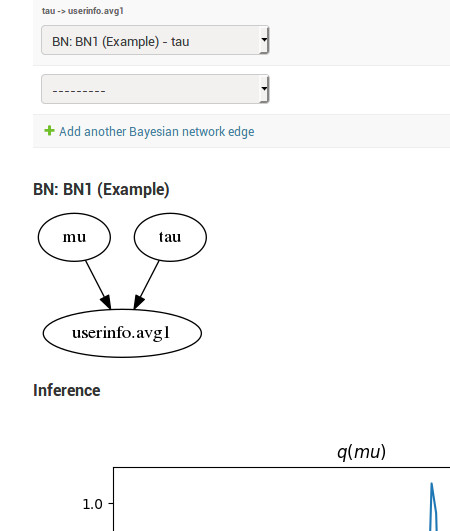django-ai
Artificial Intelligence for Django
django-ai is a collection of apps for integrating statistical models
into your Django project so you can implement machine learning
conveniently.
It integrates several libraries and engines providing your Django app with a set of tools so you can leverage the data generated in your project.
Documentation
The full documentation is at https://django-ai.readthedocs.io or the [/docs]{.title-ref} directory for offline reading.
Features
- Bayesian Networks: Integrate Bayesian Networks through your models using the BayesPy framework.
- Spam Filtering: Integrate Spam Filters to your Django project using the scikit-learn framework.
See the Introduction section in the documentation for more information.
Communication Channels
- Mailing List: django-ai@googlegroups.com
- Chat: https://gitter.im/django-ai/django-ai
- GitHub: https://github.com/math-a3k/django-ai/issues
- Stack-Overflow: https://stackoverflow.com/questions/tagged/django-ai
- AI Stack Exchange: https://ai.stackexchange.com/questions/tagged/django-ai
Quickstart
The easiest way of trying [django-ai]{.title-ref} is inside its package:
-
Create a virtual environment and activate it:
python3 -m venv django-ai_env source django-ai_env/bin/activate -
Upgrade
pipand installdjango-ai:(django-ai_env) pip install --upgrade pip (django-ai_env) pip install django-ai -
Change into the [django-ai]{.title-ref} directory, i.e.:
(django-ai_env) cd django-ai_env/lib/python3.5/site-packages/django_ai -
Create the migrations for the dependencies and apply them:
python manage.py makemigrations python manage.py migrate -
Create a superuser:
python manage.py createsuperuser -
Start the development server and visit http://127.0.0.1:8000/admin/, look at the examples and start creating your statistical models:
python manage.py runserver
You can also clone it from the repository and install the requirements in a virtualenv:
git clone git@github.com:math-a3k/django-ai.git
and following the previous steps, install the requirements -
pip install -r requirements.txt - in a virtual environment instead of
the package.
For installing it in your project, please refer here.
Running Tests
Does the code actually work?
source <YOURVIRTUALENV>/bin/activate
(myenv) $ pip install -r requirements_test.txt
(myenv) $ PYTHONHASHSEED=0 python runtests.py

